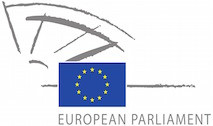EU Parliament President on Technological Totalitarianism, Politics and Democracy

Ladies and Gentlemen, we are living in the middle of a revolution. It is a revolution without banners, guns or a guillotine. But it is still a revolution turning the world upside down and leading us to question established certainties. As with every revolution, we do not know yet if it will work out for the better or for the worse. Both outcomes are possible: it is possible that in an on-line world more people will have access to knowledge, to innovative ideas and to global prosperity; that we will learn to understand one another better and to make ourselves understood better. But it is also possible that we will turn into remote-controlled ‘data cows’ who live in a world ruled over by a handful of multinational companies.
The title you gave me for my talk – ‘Technological Totalitarianism, Politics and Democracy‘ – hints at both outcomes. Both developments are possible. But I believe that the future will not be black and white. I believe the future will be grey. In other words: we will get a combination of both worlds.
It should not come as news to anyone that a technological revolution always has major social implications. The industrial revolution which unfolded in the 18th and 19th centuries brought with it massive change: social and economic, political and cultural, urban and climatic. In its wake, new political movements took shape. These political movements drew attention to the social issues of the time and in the process gave our societies a democratic basis. In the longer term, technological progress went hand in hand with social progress. I am convinced that for a new technology to be both sustainable and successful it must contribute to social progress.
But what if we apply this analysis to a technological innovation which casts itself as a wrecking ball; a technological innovation whose aim is not just to play with the way society is organised, but instead to demolish the existing order and build something new in its place? The answer is that we are no longer talking about a process of technological or economic change. We are talking about a process which will change whole societies, indeed change the way we live in the future.
Digitisation and Big Data are ushering in a new era in economics, in social relations, in data protection, in the media and the arts, in science and medicine, in the world of transport, in national security and in foreign policy. Politically, this means that the internet is no longer something which can be considered in isolation. From now on, every ‘internet issue’ will also be a social issue. For that reason, we cannot leave this to the nerds. It is a debate in which all sections of civil society must have their say.
—-
Full speech available at http://bit.ly/1KfEXUr (link is external)


